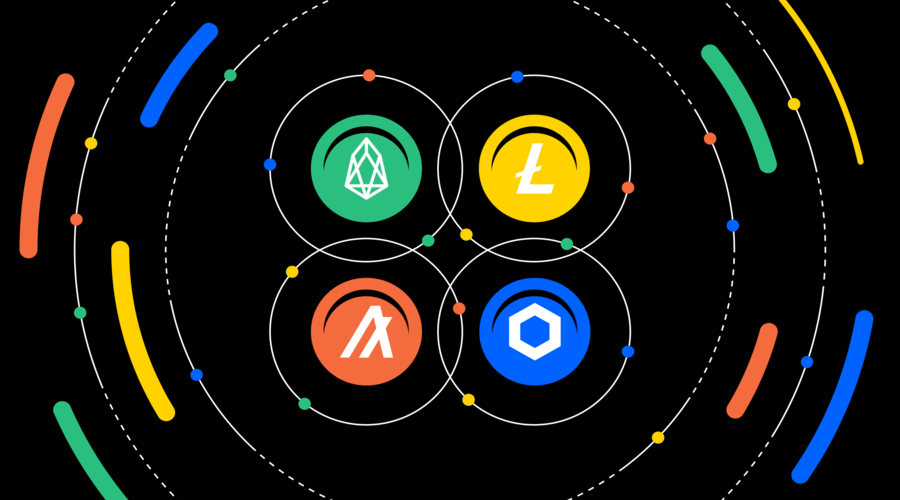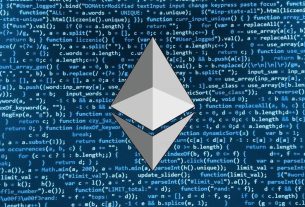Decentralized finance (DeFi) is a fast-growing sector of the cryptocurrency industry that aims to provide a decentralized alternative to traditional financial services. Many altcoins are being used to power DeFi applications and platforms. In this article, we will explore the opportunities and risks associated with DeFi and altcoins.
What is DeFi?
Decentralized finance, or DeFi, refers to a system of financial applications built on blockchain technology that operates in a decentralized, permissionless manner. DeFi aims to provide a range of financial services, such as lending, borrowing, and trading, without the need for intermediaries such as banks or financial institutions.
How Altcoins are Used in DeFi
Altcoins are being used in a variety of ways in the DeFi ecosystem. Some of the most common uses of altcoins in DeFi include:
Liquidity Provision
Altcoins can be used to provide liquidity to decentralized exchanges (DEXs) such as Uniswap or PancakeSwap. By providing liquidity, users can earn trading fees and other rewards.
Staking
Many altcoins are used for staking, which involves holding cryptocurrencies in a wallet to support the operation of a blockchain network and earn rewards. Staking can be used to support DeFi applications such as governance and liquidity provision.
Collateralization
Altcoins can be used as collateral to borrow other cryptocurrencies or stablecoins in DeFi lending platforms such as Aave or Compound. This allows users to access liquidity without having to sell their altcoins.
Opportunities of DeFi and Altcoins
DeFi and altcoins offer several opportunities for investors and users. Some of the key opportunities include:
Decentralization
DeFi and altcoins provide a decentralized alternative to traditional financial services. This allows users to access financial services without the need for intermediaries such as banks or financial institutions.
Accessibility
DeFi and altcoins are accessible to anyone with an internet connection, making financial services more accessible to individuals who may not have had access to traditional financial services.
Potential for High Returns
DeFi and altcoins can offer high returns through liquidity provision, staking, and other DeFi applications. However, it’s important to note that these returns come with higher risk and volatility.
Risks of DeFi and Altcoins
While DeFi and altcoins offer many opportunities, they also come with several risks. Some of the key risks include:
Market Volatility
Altcoins and DeFi tokens can be highly volatile, which can lead to significant losses for investors.
Security Risks
DeFi platforms and altcoins may be vulnerable to security risks, such as hacks or smart contract vulnerabilities.
Regulatory Risks
DeFi and altcoins may be subject to regulatory scrutiny and uncertainty, which can impact their legality and accessibility.
DeFi Platforms and Altcoin Ecosystems
DeFi platforms and altcoin ecosystems are interconnected, and their success is dependent on one another. DeFi platforms rely on altcoins to provide liquidity, and altcoins depend on DeFi platforms to provide a use case and demand for their tokens.
DeFi Yield Farming
DeFi yield farming is a process where users can earn rewards by providing liquidity to DeFi platforms. Yield farming involves staking cryptocurrency assets in return for yield, which can come in the form of tokens, fees, or other rewards.
DeFi Lending and Borrowing
DeFi lending and borrowing platforms allow users to lend and borrow cryptocurrencies without the need for intermediaries such as banks or financial institutions. These platforms use smart contracts to facilitate lending and borrowing, and users can earn interest on their crypto assets.
DeFi Insurance
DeFi insurance provides coverage for users against losses incurred from smart contract vulnerabilities or hacks. DeFi insurance is a relatively new field, and there are several platforms that offer insurance products for DeFi users.
DeFi Governance
DeFi governance refers to the process of decision-making and management in decentralized finance platforms. Governance tokens are used to represent voting power, and users can vote on important decisions such as protocol upgrades, fee changes, and other proposals.
DeFi and NFTs
DeFi and non-fungible tokens (NFTs) are two of the most significant trends in the cryptocurrency industry. DeFi platforms are being used to power NFT marketplaces and provide liquidity for NFT auctions.
DeFi and Centralized Finance (CeFi)
DeFi and centralized finance (CeFi) are often seen as competing systems, but they can also complement each other. CeFi platforms can provide fiat on-ramps and off-ramps for DeFi platforms, while DeFi can provide a decentralized alternative to CeFi services.
DeFi and Stablecoins
DeFi and stablecoins are closely related, as stablecoins provide a way to access DeFi platforms without being exposed to the volatility of cryptocurrencies. Stablecoins are used as a form of collateral in DeFi lending and borrowing platforms.
DeFi and Privacy
DeFi and privacy are two important concepts in the cryptocurrency industry. Some DeFi platforms offer privacy features, such as anonymous transactions or the ability to shield transaction details.
DeFi and Interoperability
DeFi and interoperability are important for creating a seamless user experience and connecting different blockchain networks. Interoperability protocols such as Polkadot and Cosmos aim to provide a framework for cross-chain communication and interoperability.
DeFi is a rapidly evolving sector that has grown significantly in recent years. The total value locked in DeFi platforms has grown from less than $1 billion in early 2020 to over $100 billion in 2021. This growth has been driven by increased adoption of DeFi platforms and the proliferation of new DeFi projects.
Despite the growth and potential of DeFi, there are several challenges and risks that users should be aware of. These include regulatory uncertainty, security risks, market volatility, and smart contract vulnerabilities. It’s important for users to do their due diligence and carefully evaluate the risks and opportunities of DeFi before investing or participating in these platforms.
Overall, DeFi represents a significant shift in the way financial services are delivered and has the potential to revolutionize the finance industry. As the DeFi ecosystem continues to evolve, it’s important for users to stay informed about the latest developments and emerging trends in this space.
Conclusion
In conclusion, DeFi and altcoins offer several opportunities and risks for investors and users. DeFi provides a decentralized alternative to traditional financial services, while altcoins offer unique features and benefits for DeFi applications. However, it’s important to understand the risks associated with DeFi and altcoins, including market volatility, security risks, and regulatory uncertainty. By understanding these risks and opportunities, investors and users can make informed decisions about how to participate in the DeFi and altcoin ecosystem.
I’m a best-selling author and leading authority in the world of cryptocurrency. I have been involved in the crypto community since 2012 and have helped numerous startups and organizations on blockchain strategy. I am a regular contributor to Forbes and CoinDesk, and my work has been featured in The Wall Street Journal, Bloomberg, Reuters, and other major media outlets. In addition to writing for publications, I am also a sought-after speaker on cryptocurrency and blockchain technology niches respectively.



